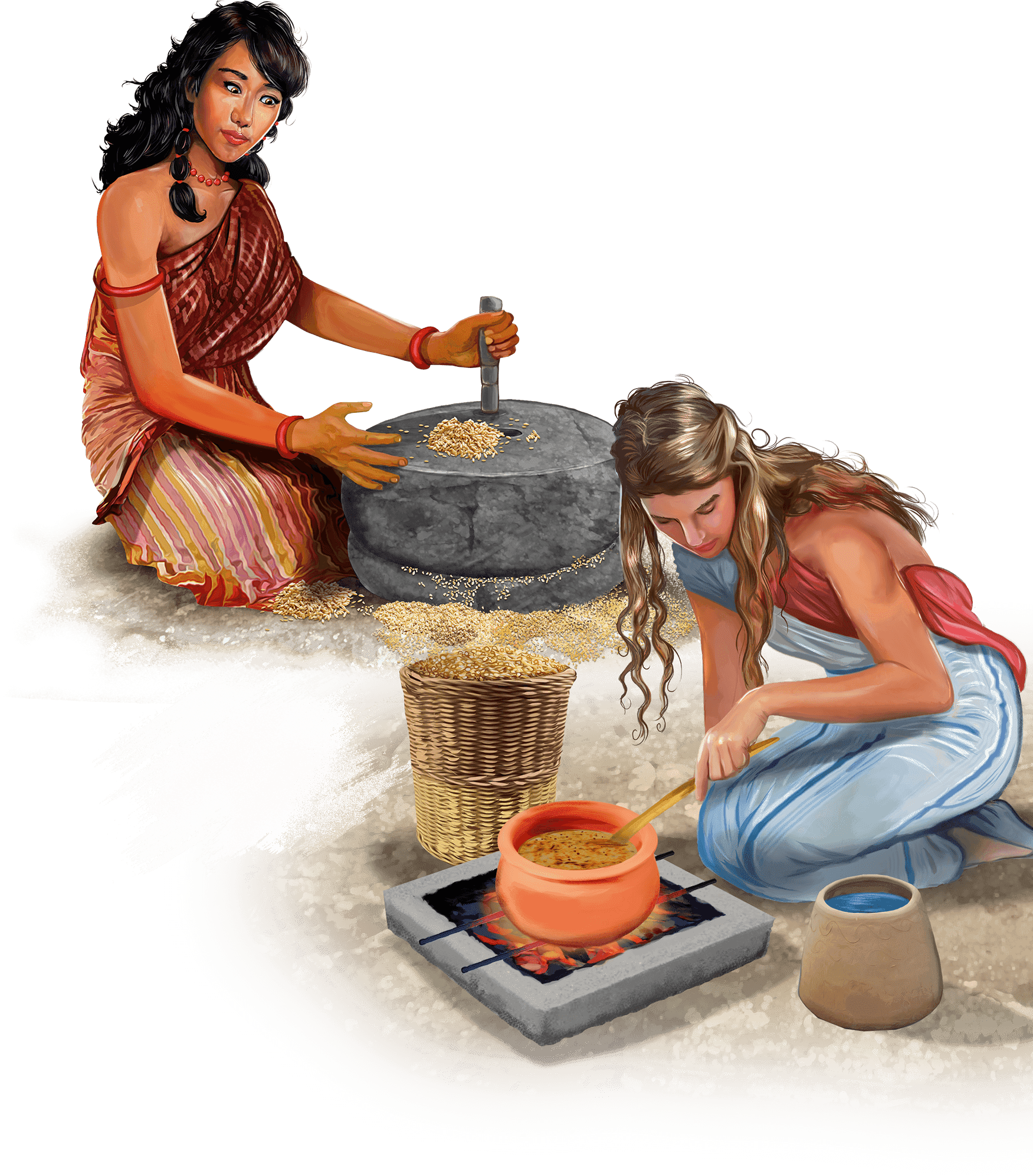Around 12,000 years ago, on the fertile and mineral-rich land which lies between the Middle East’s two most prominent rivers, the Tigris and Euphrates, human kind started the agricultural revolution and planted the first seed that led to modern and settled life. That seed was WHEAT.

The wheat and humankind contributed to each other’s civilization and domestication. The history of wheat and humankind went parallel and influencing each other. Goddesses of Sumerian used “wheat” in their names and it was one of the motifs of the Sumerian legends. In the 2800’s BC, Chinese Emperor Shen Nung even declared wheat one of the five holy grains.
Initially used to make bread, wheat showed its true miracle around 4,000 years ago. Bulgur, the most valuable ingredient of healthy meals, was discovered!

Bulgur, which was first boiled then ground in a mortar after drying, played an important role in the formation and diversification of Mesopotamian cuisine. Because it was healthy and nutritious, it had become a staple for those who carried out laborious and exhausting tasks.
Thanks to its taste and the fact that it could be used as the main ingredient of several dishes, it became the favorite food of rulers of numerous civilazations. Moreover, because it was filling and energizing, history has shown that gladiators were served bulgur as breakfast.
